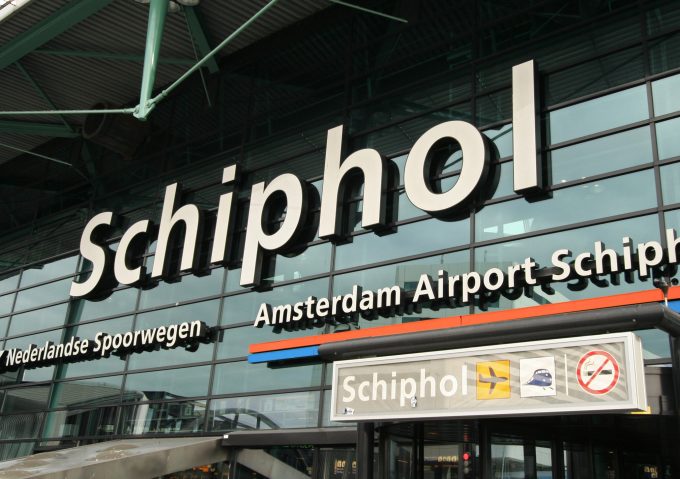Sasi World appoints Hiran Perera as senior advisor, freighters
Strategic Aviation Solutions International (Sasi) World has announced the appointment of Hiran Perera as a ...

Despite a modest decline in tonnage last month, Amsterdam Schiphol (AMS) is outperforming most of its peers in what is a subdued air cargo market, according to a senior executive at the Netherlands air hub.
Throughput was down 3.4% in September, compared with the same month in 2022, to 117,325 tonnes, largely the result of weak North American imports and exports and a mixed performance on key Far East tradelanes.
Joost van Doesburg, AMS’s head of cargo, told The Loadstar: “We are in a complex situation with Dutch government plans to reduce the number of flight slots available at the airport, as part of its sustainability agenda. However, my conclusion is that we are outperforming almost all of the European cargo airports at the moment, in relation to the volume of shipments,”
He explained that freighter movements were down 12%, year on year, mainly a result of a reduction in slots of more than 3%, but added: “We were able to limit the decline in cargo traffic to 3.4%, due to an increase in belly capacity which is being well utilised.”

Highlighting the upbeat mood at AMS, Mr Van Doesburg noted that, based on the latest data from Clive/Xeneta, AMS is the only airport in Europe that has increased its outbound cargo on last year.
Diving deeper into the slot reduction issue, he explained that following the sanctions on Russia after its invasion of Ukraine, the slots held by AirBridgeCargo and the now bankrupt Flybe were not re-distributed.
“So we are already some way short of the maximum number of annual slots of 500,000, which has been in place for some time. Moreover, in relation to summer season 2024 we will face another [slot] decrease of 3%.”
He added that AMS was moving towards an annual 452,500 slots, from winter season 2024, a reduction that remains subject to a pending court case brought by several airlines against the Dutch government.
Mr Van Doesburg said: “Airlines are allowed to manage the slot reductions themselves, so what we are likely to see is that those operating freighters as well as passenger aircraft will probably reduce their freighter slots to keep their passenger flights at the same level – a kind of ‘crowding-out’ effect. So there’s the prospect of even fewer all-cargo flights at Schiphol next year and in the years to come.”
More bellyhold
However, on the plus side, he believes many airlines are likely to introduce bigger passenger aircraft, meaning an increase in belly capacity, explaining: “I think Schiphol will look much more like London Heathrow, which is principally a belly cargo hub, even though AMS will probably continue to handle more freighter flights than the UK airport.
“I represented European shippers for several years and have seen a growing expectation on their part for a higher-quality air cargo product. In a way, ‘cargo-friendly’ passenger aircraft can give shippers the greater reliability and predictability they are looking for from airlines.”
Mr Van Doesburg revealed that Schiphol was on the point of finalising its future cargo strategy which will be rolled out at the beginning of next year.
“I can’t really say much more at this stage, other than to underline that a major element is a focus on quality value-added shipments, such as pharma, hi-tech, valuables and machinery. We are not really targeting e-commerce, simply due to the fact it’s high-volume. The emphasis for us is on lower-volume, high-value cargo. If you want to make a money, you need to specialise and that’s the direction we are moving in.”
Integrated cargo strategy
The AMS operating company purchased a 40% stake in Maastricht Aachen Airport, in the southern Netherlands, this year and the hope is that by the new year an agreement will have been reached on an integrated cargo strategy, said Mr Van Doesburg.
“An ideal scenario would be for Maastricht to capture a good number of the freighter flights lost by AMS. But even though the airport’s runway is being extended from 2,500 metres to 2,750, a 777 freighter may still have some weight restriction issues on routes to the Far East and the US west coast. Nevertheless, the aim is to be able to offer Maastricht as a great alternative to Schiphol for freighter traffic.”
One of the pillars of Schiphol’s cargo strategy is the construction of a state-of-the-art, fully automated cargo centre, a joint €200m project between the airport and dnata, the Emirates-owned ground handler.
The 61,000 sq metre building will be capable of processing over 850,000 tonnes of cargo a year and is scheduled to become operational in Q3-Q4 24, providing similar capacity to dnata’s current facility at AMS.
“The new handling centre’s location is significant, as it will be situated in the south-east of the airport, in proximity to where most of the existing air cargo facilities are situated. We are hoping KLM Cargo will transfer its premises to this part of the airport too – the idea being to create a veritable ‘Cargo City’ complex to provide seamless air cargo handling services.”
Turning briefly to the outlook for air cargo, van Doesburg pointed to “some positive signals” that might indicate the market is bottoming out. He said: “There’s been a little bit of an uptick in demand, which might have something to do with the peak season – which we expect to be modest this year.
“What will happen in January is anybody’s guess, frankly.”
Comment on this article